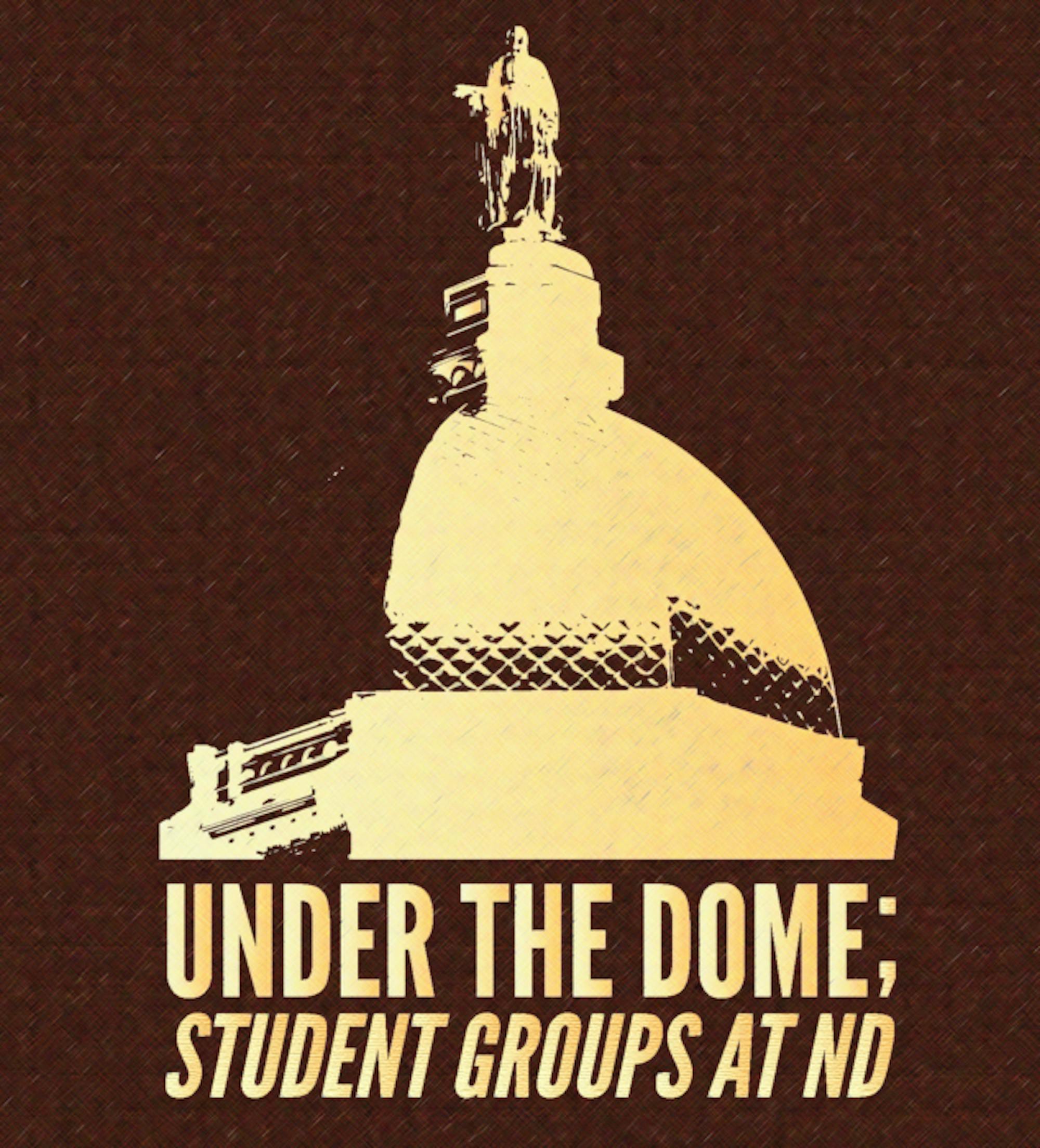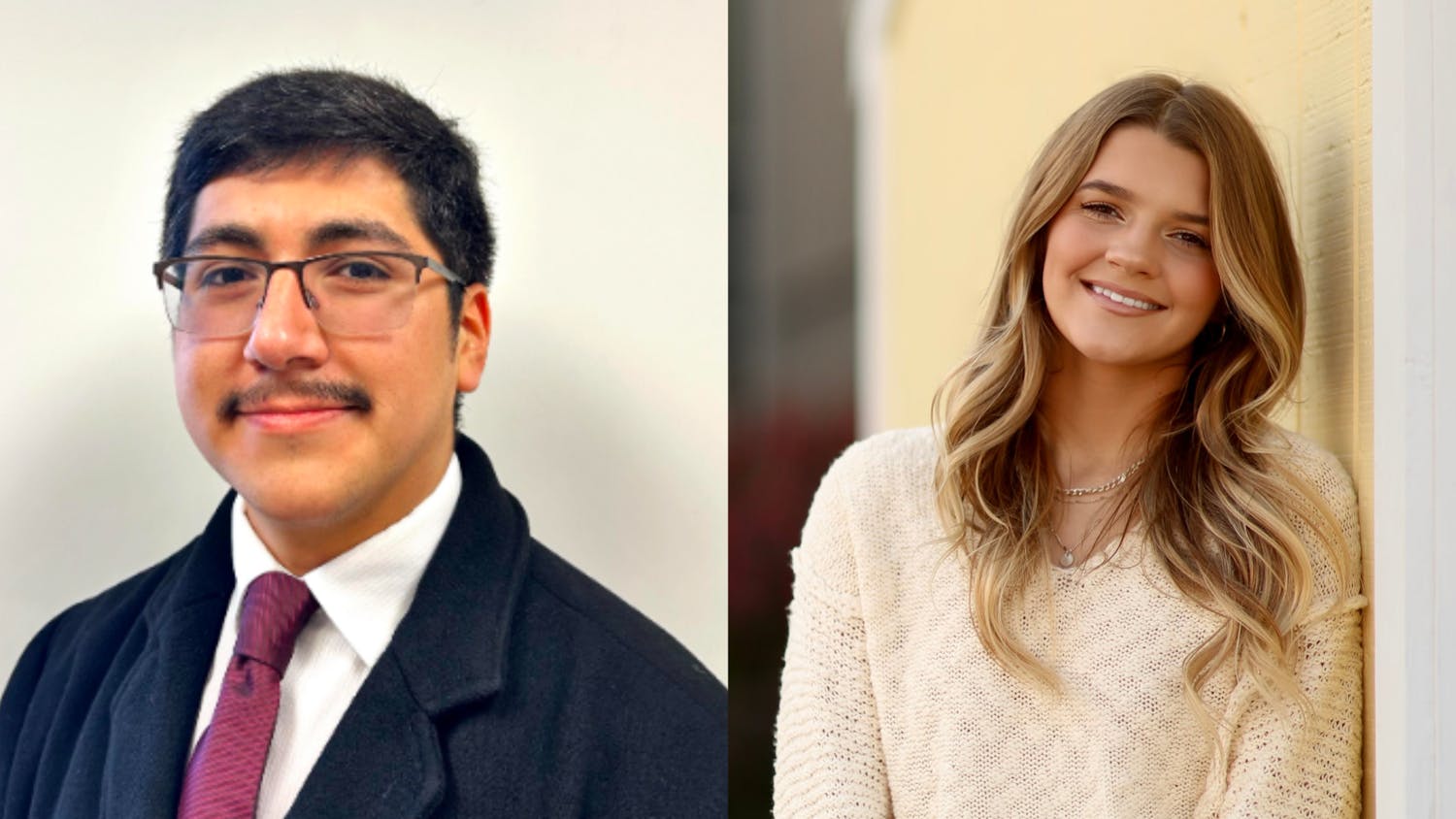Editor's note: This is the first story in a series examining how student groups run as part of the larger Notre Dame community.
32 residence halls. 354 clubs. 20 student organizations.
Many students have found a home within the variety of student groups that thrive under the dome, but few understand how the University structures the multitude of clubs and organizations it houses. To make the process clearer, The Observer interviewed student leaders and administrators from across campus.
The beginnings
All student groups on campus must go through an approval process to be officially recognized. This process involves first submitting an application and then awaiting a decision. The application periods for prospective clubs are in the spring and the fall.Interim Director of the Student Activities Office (SAO) Maureen Doyle explained that the approval process for clubs must first go through SAO before the Club Coordination Council (CCC) looks at the proposal. She said SAO deals with logistical details such as risk management and copyright issues.
“SAO decides whether the club could be established, and then CCC decides whether it should be established,” Doyle said.
Therefore, the CCC has the final say on all club approvals, CCC president and senior Maddie Tupy said.
The CCC is a student organization that is responsible for the allocation of funding for clubs. According to their website, the organization also represents clubs in the Student Union, increases awareness of club issues on campus and supports clubs as they network, fundraise and consult.
“[The CCC] represents issues of clubs to the rest of the Student Union,” Tupy said. “I’m a member of the senate. My goal is to vote on things that I think would positively impact clubs on campus. And we also have an Instagram account where we try to promote club progress.”
Tupy said every club must align with the Catholic mission of Notre Dame and all du Lac policies. If it does not, it will not be approved as an official club.
Other reasons clubs may not be approved include a lack of interest in the club and a low chance of sustainability, Tupy said.
Classification Differences
On the SAO website, there are four distinct classifications for student groups: CCC, organization, residence hall and graduate.Doyle explained that many organizations are outlined in the Student Union Constitution — such as the class councils.
“Our student org[anization]s are larger, more ingrained organizations than student groups on campus so there's less ebb and flow with an organization than there is with a club,” she said.
There are 20 groups classified specifically as student organizations: Bookstore Basketball Commission, each year’s Class Council, Club Coordination Council, Debate Team, Diversity Council of Notre Dame (DCND), Executive Cabinet (Student Government), Financial Management Board, FUEL (First Undergraduate Experience in Leadership), Hall Presidents Council, Irish Gardens, Judicial Council, Junior Parents Weekend, Off-Campus Council, PrismND, Senate, Student Union Board (SUB) and The Shirt Project.
The classification of a group as a club or student organization means the group has different routes to receiving funding, assigning an advisor and planning events.
Allocating funding
All groups classified as clubs secure funding under the CCC. Tupy said a minimum of 40% of the Student Union budget goes toward funding.Each club fills out a budget that requests a certain amount of funds for the events and programs they plan to hold throughout the year. She said only about 15% of the funding that clubs request gets fulfilled in the allocation process.
“I do get a lot of frustration sometimes with clubs just not understanding why they got the money they did in our process, and the way we have to allocate money to clubs is just so complicated that sometimes it's just hard to explain it,” Tupy said.
Meanwhile, student organizations do not receive funding from the CCC budget but rather from the Financial Management Board, Tupy said.
Two specific student organizations, Irish Gardens and The Shirt Project, are revenue-generating projects but are still classified as organizations, Doyle said.
An additional source of funding for both clubs and student organizations is through university offices and departments. Assistant Director of the Gender Relations Center (GRC) John Johnstin said his office sets aside funds to help co-sponsor clubs and events that “obviously relate to the mission of the GRC.” The GRC encourages healthy dialogue on relationships, gender and sexuality, according to its website.
Johnstin said the GRC both heeds requests from student groups and seeks out sponsorships for events. He said the office is flexible with how it supports student groups.
“Sometimes it's helping them develop and sometimes it's just kind of assisting them with financial support,” Johnstin said. “But it's always looking to see how we can support, and it looks different in a number of different ways, [depending] what the club or organization is specifically looking for.”
Another office in the Division of Student Affairs, Multicultural Student Programs and Services (MSPS), supports students of color and creates opportunities to celebrate the richness of having a diverse student population, director Arnel Bulaoro said in an email.
Support from MSPS comes in a variety of forms, Bulaoro said, with the most popular being financial support, advice and advertisement.
“When the office is invited by student groups or campus partners to collaborate on an event or initiative, we prioritize these invitations by asking how it supports our students of color and how it impacts the [diversity, equity and inclusion] work of the University,” he said via email.
Across the board, student groups also have the ability to raise money through fundraising events — the largest being the annual Notre Dame Day.
Assigning advisors
Clubs and organizations differ significantly in how advisors are chosen. In clubs, students can choose their advisor, while in organizations, the advisor is chosen for them by SAO. Part of Doyle’s role as director of SAO is assigning advisors, who she says largely help with logistical operations, not the content of the group’s effortsSophomore Dane Sherman, co-historian of the student organization PrismND, described it as one of the “weird things” about being classified as a student organization.
“Students are consulted in those decisions, but we're not allowed to choose that person. We are given some purview or some choice over it but not a huge amount,” Sherman explained.
Doyle, who serves as an advisor to the executive branch of student government, said the faculty advisors are supporters, not leaders of the groups.
“Our philosophy on [being advisors] is to walk the path with our students and not do it for them,” she said.
Planning events
In order for a club to host a speaker, hold a forum or have any event, they must fill out a form and gain approval from SAO. Doyle explained that the most important consideration for allowing a club to hold a programming event is to determine if the event aligns with the club’s mission statement.“If an event aligns with the mission, great, then absolutely. If it doesn't, then what is the reason for that group to be sponsoring something, coordinating something that is outside of the mission of their organization or their club?” Doyle said.
For example, PrismND’s mission statement calls for it to be a “peer-to-peer interaction-based student organization/gay-straight alliance, where LGBTQ students and Allies can work together to ‘create a sense of human solidarity and concern for the common good’ as outlined in Notre Dame’s mission statement,” according to the club’s bylaws.
Sherman explained that this can limit PrismND in some aspects such as pushing policy initiatives or staging demonstrations.
Senior Matheo Vidal, co-president of College Democrats, said there are a few limitations to what events the club is allowed to hold.
“There's a rule in the CCC guidelines somewhere that we are in accord with all of the University's positions on various issues regarding the Catholic faith,” Vidal said.
Vidal noted that reproductive rights is the main area the club steers away from — including hosting speakers or alumni that work in that area of politics. Vidal said the club does this “in an effort to continue to operate.”
Junior Chessley Blacklock, incoming president of FeministND (FemND), expressed a similar view. She said the club prioritizes keeping their space on campus.
“We as feminists and as a feminist club want to address those specific elements of [feminism] not all of which the Catholic Church approves of in any manner,” she said. “Whether or not that is something we similarly disagree with or opposingly agree with, that’s not a statement we get to make, and we do that in the interest of preserving our club status.”








